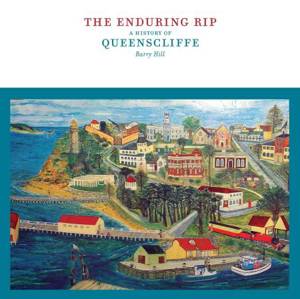
- Afhalen na 1 uur in een winkel met voorraad
- Gratis thuislevering in België vanaf € 30
- Ruim aanbod met 7 miljoen producten
- Afhalen na 1 uur in een winkel met voorraad
- Gratis thuislevering in België vanaf € 30
- Ruim aanbod met 7 miljoen producten
Zoeken
Omschrijving
From the beginning the beautiful promontory of Queenscliff played a unique role in colonial history. Its local legend of William Buckley, 'the wild white man', who lived with the Wathaurong people for 32 years, is a seminal story of first contact between Aborigines and Europeans. White settlement in Queenscliff was essential to the navigation of the treacherous heads of Port Phillip Bay. In 1838 the first pilots operated in whale boats from Queenscliff, and by the time gold was discovered in the 1850s they were joined by a Health Officer and Customs Officer. By 1863 this maritime settlement was proudly respectable municipality, and soon afterwards a resort declared to be 'the Queen of the Watering Places', to which large steam ferries transported hundreds of people to the town's grand hotels. As a seaside resort Queenscliff was the compliment to the 'Marvellous Melbourne' of the booming 1880s. It also boasted of Fort Queenscliff as a key to colonial defences. And it had a vigorous fishing community that were the ballast of the town.
This first official history vividly weaves these threads. It breaks new ground on William Buckley as a go-between; Queenscliff's 'aristocracies' of pilots, lifeboat men and First World War soldiers; the rise and fall of the fishing industry; and the untold troubles of early Fort Queenscliff. Most of all it essays—with Barry Hill's touch as a poet—upon the resonance of Queenscliff as a place. It concludes with a challenging account of how the community of Queenscliff successfully campaigned in 1993 to remain an autonomous municipality, a political state of affairs that makes its historical identity a living issue.
This first official history vividly weaves these threads. It breaks new ground on William Buckley as a go-between; Queenscliff's 'aristocracies' of pilots, lifeboat men and First World War soldiers; the rise and fall of the fishing industry; and the untold troubles of early Fort Queenscliff. Most of all it essays—with Barry Hill's touch as a poet—upon the resonance of Queenscliff as a place. It concludes with a challenging account of how the community of Queenscliff successfully campaigned in 1993 to remain an autonomous municipality, a political state of affairs that makes its historical identity a living issue.
Specificaties
Betrokkenen
- Auteur(s):
- Uitgeverij:
Inhoud
- Aantal bladzijden:
- 312
- Taal:
- Engels
Eigenschappen
- Productcode (EAN):
- 9780522876215
- Verschijningsdatum:
- 30/11/2004
- Uitvoering:
- E-book
- Beveiligd met:
- Adobe DRM
- Formaat:
- ePub

Alleen bij Standaard Boekhandel
+ 31 punten op je klantenkaart van Standaard Boekhandel
Beoordelingen
We publiceren alleen reviews die voldoen aan de voorwaarden voor reviews. Bekijk onze voorwaarden voor reviews.








